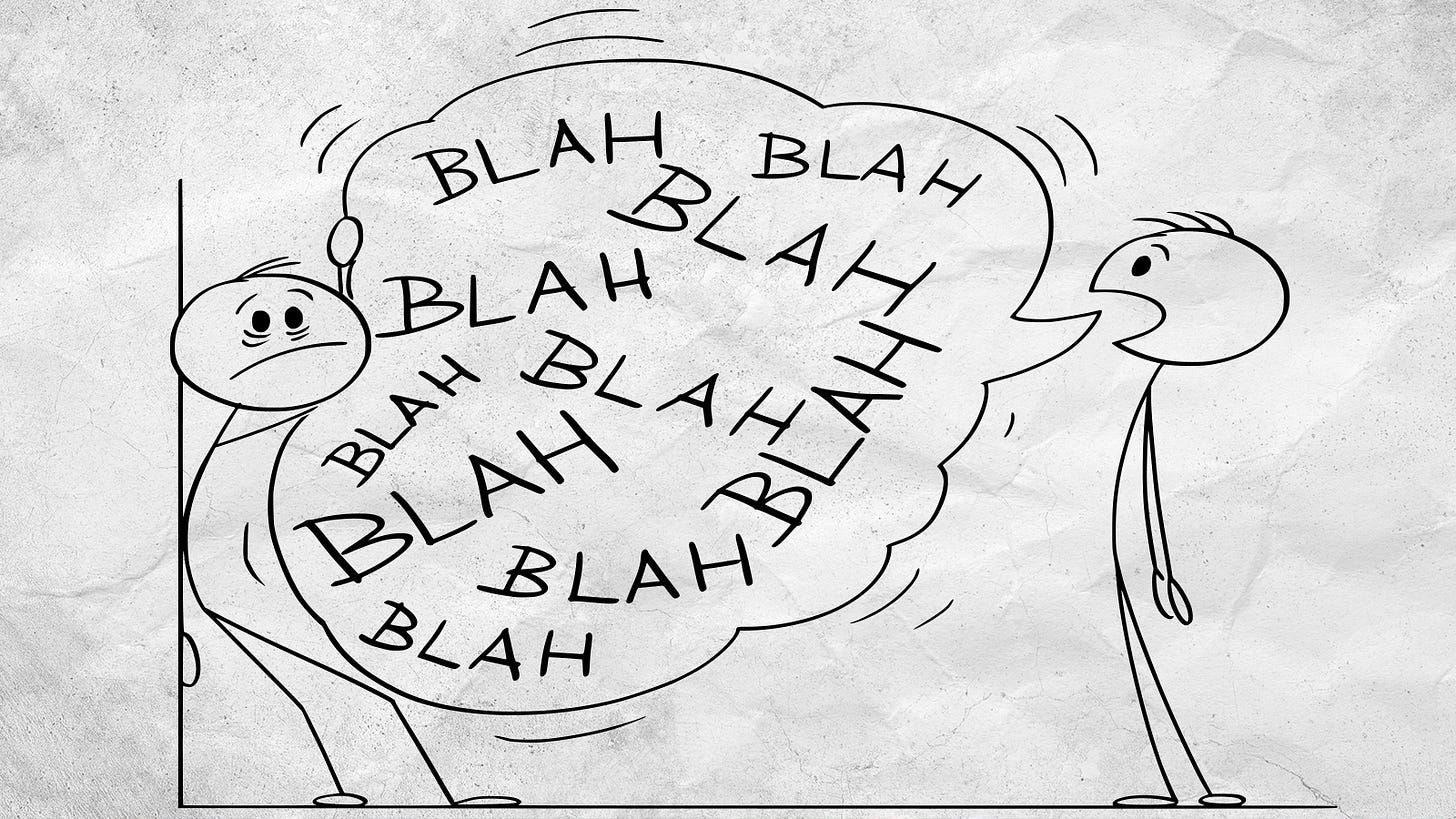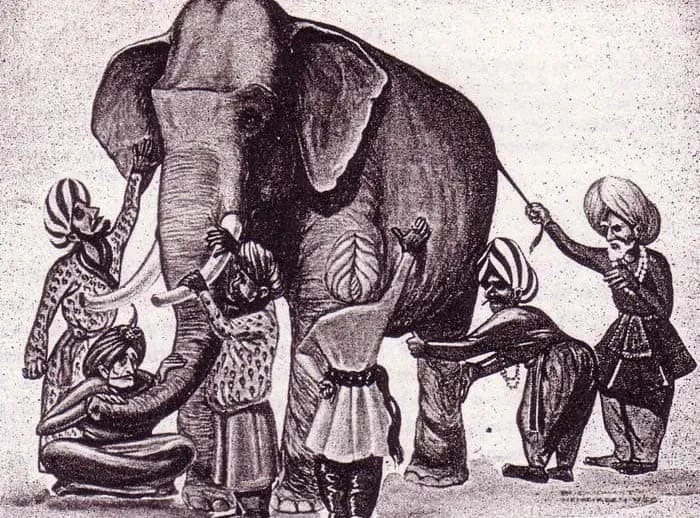Active Listening
Effective communication is an essential ingredient for success in both personal and professional life. It is a two-way process that involves both speaking AND listening.

Effective communication is an essential ingredient for success in both personal and professional life. It is a two-way process that involves both speaking and listening.
While we are often taught how to speak effectively, the art of active listening is often neglected. In this article, let us explore what active listening is, why it is important, and the role it plays in management and leadership.
What is Active Listening?
Active listening is a communication skill that involves paying full attention to the speaker, understanding their message, and responding appropriately. It is a deliberate effort to comprehend the speaker's message without being judgmental or distracted.
Active listening requires both verbal and non-verbal cues, such as nodding, eye contact, and appropriate facial expressions, to show that the listener is engaged and interested.
Why is Active Listening Important?
Active listening is a critical skill that can have a profound impact on personal and professional relationships. Here are some reasons why active listening is important:
- Improved Understanding
Active listening helps us to gain a better understanding of the speaker's perspective, thoughts, and feelings. When we actively listen, we can comprehend the underlying message, which can help us to respond more effectively.
- Building Trust
Active listening is a vital component of building trust in personal and professional relationships. When we listen actively, we show the speaker that we value their input and respect their opinion. This can help to build a strong rapport and establish a foundation of trust.
"The art of conversation lies in listening." - Malcolm Forbes
- Improved Problem Solving
Active listening is a crucial component of effective problem-solving. When we listen actively, we can identify the root cause of the problem and develop appropriate solutions. Active listening can help us to see problems from different perspectives, which can lead to more creative and innovative solutions.
- Enhanced Communication
Active listening can help to enhance communication by promoting open and honest dialogue. When we listen actively, we can understand the speaker's message more clearly, which can help us to respond more effectively. This can help to reduce misunderstandings and promote better communication.
Did you say solution?
The human desire to be heard and understood is a fundamental psychological need that transcends cultures and generations. Active listening serves as a powerful tool to fulfil this need. Often, when people share their thoughts, feelings, or problems, they are not necessarily seeking immediate solutions or advice. Instead, they yearn for a safe space where they can express themselves freely and feel validated. The act of being listened to can, in itself, be incredibly therapeutic. It fosters emotional connection, builds trust, and often helps the speaker see their own situation more clearly. In a world quick to offer solutions and advice, the simple yet profound act of active listening can be a balm to the human soul.
The act of listening, truly, fosters emotional connection, builds trust, and often helps the speaker see their own situation more clearly.
The Role of Active Listening in Management and Leadership
Active listening is a crucial skill for effective management and leadership. Here are some ways in which active listening can benefit managers and leaders:
- Improved Decision Making
Active listening can help managers and leaders to make better decisions. By listening actively to their employees, managers and leaders can gain a better understanding of the issues facing their teams. This can help them to make more informed decisions that take into account the needs and concerns of their employees.
- Improved Employee Engagement
Active listening is a critical component of employee engagement. When managers and leaders listen actively to their employees, they show that they value their input and respect their opinions. This can help to boost employee morale, promote a positive work environment, and enhance overall productivity.
- Better Conflict Resolution
Active listening can help managers and leaders to resolve conflicts more effectively. By listening actively to both parties, managers and leaders can gain a better understanding of the issues at hand. This can help them to develop appropriate solutions that address the root cause of the conflict and promote a positive resolution.
Perception is reality
"In our daily lives, the adage 'perception is reality' often holds true, and nowhere is this more evident than in the realm of active listening. Consider the scientific phenomena that shape our world: the sun appears yellow to us, yet it's actually white; the sky seems blue, but that's a result of light scattering. These are not just quirks of nature; they're powerful examples of how our senses create a subjective reality.
Active listening allows us to tap into these individual 'realities,' offering a glimpse into how others perceive the world. By doing so, we can better understand their actions, reactions, and emotions, even if their 'reality' differs from objective truth."
Rashomon effect
The Rashomon effect, named after Akira Kurosawa's 1950 film 'Rashomon,' explores the idea that multiple people can witness the same event and yet have entirely different interpretations of what happened.
This psychological phenomenon has profound implications, particularly in legal contexts. In courtrooms, eyewitness testimonies often vary widely, each influenced by personal biases, emotional states, and selective memory. This divergence in accounts can make it challenging for judges and juries to ascertain 'the truth,' leading to complex ethical and legal dilemmas.
The Rashomon effect serves as a compelling reminder that reality is multifaceted and that understanding any situation fully requires acknowledging the kaleidoscope of human perceptions.
In a world where 'reality' is often a matter of perception, active listening stands as a vital tool for uncovering the nuanced truths that shape our lives
"Most people do not listen with the intent to understand; they listen with the intent to reply." - Stephen R. Covey
By practicing active listening, we can ensure that everyone feels valued and understood, reducing the chances of miscommunication. It's not just about processing information; it's about recognising emotions, intentions, and underlying concerns. In an age where digital communication often dominates, the human touch of active listening becomes even more crucial, bridging gaps and fostering a culture of respect and collaboration.
"The most basic of all human needs is the need to understand and be understood. The best way to understand people is to listen to them." - Ralph Nichols










As a leader at my work place i have always come to realize when i listen to what my co-workers are saying and respond appropiately it has always resulted in a very positive working environment. Active listening is fundamental skill that we all need to learn especially in today's world where everyone wants to have an opinion and don't want to listen.